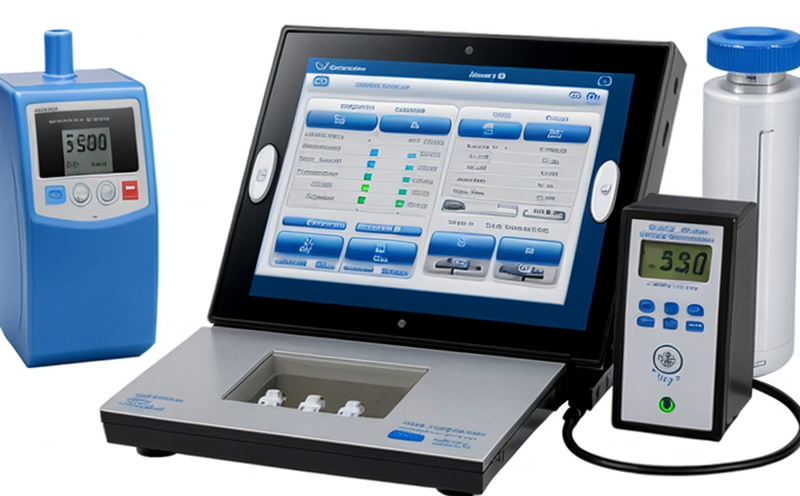Anti-Free Flow Device Testing in Infusion Pumps
In the realm of medical device testing, ensuring that infusion pumps and drug delivery systems function reliably without free flow is paramount. This service focuses specifically on anti-free flow (AFF) device testing within infusion pumps to ensure patient safety and regulatory compliance.
The anti-free flow system in an infusion pump is designed to prevent the release of medication when it should not be, which could lead to serious health risks such as overdosing or underdosing. This service involves a series of rigorous tests that validate the integrity and performance of these critical components. It is essential for ensuring that the pumps function correctly during all stages of use—whether in a clinical setting or in patient homes.
The testing process typically includes verifying the pump's ability to detect and respond to various scenarios where free flow might occur, such as needle disconnection, kinking, or occlusion. This involves simulating real-world conditions that could lead to free flow situations and evaluating how well the anti-free flow device can prevent it.
Key parameters tested include:
- Response time to detect a free flow event
- Accuracy in halting fluid delivery upon detection of free flow
- Precision in restarting fluid delivery once the free flow condition is resolved
- Effectiveness in preventing medication wastage and contamination during free flow events
The testing apparatus used for this service includes a range of sophisticated equipment designed to mimic the conditions that might cause free flow. This can include specialized manifolds, syringes, tubing, and software simulations that replicate real-world patient care scenarios.
Acceptance criteria are strictly defined according to international standards such as ISO 14712:2015 for infusion pumps. These standards ensure that the testing process is consistent and repeatable across different devices and laboratories worldwide. Compliance with these criteria guarantees that the tested devices meet global quality and safety benchmarks.
During specimen preparation, the focus is on ensuring that each pump undergoes a thorough cleaning process to remove any contaminants or residues from previous tests. This ensures accurate and reliable test results.
The testing procedure involves several steps:
- Calibration of the infusion pump against known standards
- Setting up the infusion pump in a controlled environment to simulate clinical use
- Initiating the free flow simulation with various scenarios and measuring the pump's response time
- Evaluating the effectiveness of the anti-free flow device by analyzing fluid delivery patterns
- Recording and validating all test data against predefined acceptance criteria
The results of this testing are critical for ensuring that infusion pumps meet stringent regulatory requirements. Regulatory bodies, such as the FDA (Food and Drug Administration) and EMEA (European Medicines Agency), mandate compliance with these standards to protect public health.
Failure to comply can lead to recalls or even legal action against manufacturers. By undergoing this testing service, medical device companies can ensure that their products are safe and reliable, thereby protecting patient health and maintaining a strong reputation in the industry.
Benefits
The benefits of anti-free flow device testing extend beyond regulatory compliance to include enhanced product performance and reliability. By ensuring that infusion pumps can accurately detect and respond to free flow events, this service helps manufacturers produce devices that are both safe and effective.
- Improved Patient Safety: Ensures that patients receive the correct dosage of medication without risk of over- or under-delivery.
- Enhanced Regulatory Compliance: Helps companies meet international standards such as ISO 14712:2015, ensuring smoother product launches and market access.
- Increased Product Reliability: Identifies potential design flaws early in the development process, allowing for timely corrections and improvements.
- Cost Savings: By identifying issues during testing rather than after product release, companies can avoid costly recalls and legal disputes.
The service also offers competitive advantages by providing a robust quality assurance framework. This ensures that the company’s products are consistently reliable and meet or exceed market expectations. In an increasingly competitive global market, this level of reliability is crucial for maintaining customer trust and loyalty.





